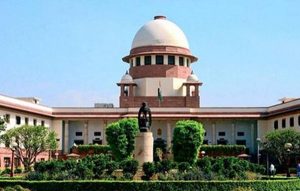 The Hon’ble Supreme Court in the case of COMMISSIONER OF CENTRAL GOODS AND SERVICE TAX & ORS. VERSUS KARUNA RAJENDRA RINGSHIA vide SPECIAL LEAVE PETITION (CIVIL) Diary No(s). 21136/2025 dated 09.07.2025, upholds the decision of Delhi High Court that ITC can only be blocked to the extent available in the ECL, and negative blocking is ultra vires Rule 86A. This ensures protection for taxpayers against arbitrary and excessive blocking of input tax credit without due process. The Supreme Court’s refusal to interfere lends further judicial strength to the interpretation of Rule 86A laid down by the Delhi High Court. Blocking of ITC in ECL is permissible only when backed by material evidence as per Rule 86A, and cannot be done arbitrarily.
The Hon’ble Supreme Court in the case of COMMISSIONER OF CENTRAL GOODS AND SERVICE TAX & ORS. VERSUS KARUNA RAJENDRA RINGSHIA vide SPECIAL LEAVE PETITION (CIVIL) Diary No(s). 21136/2025 dated 09.07.2025, upholds the decision of Delhi High Court that ITC can only be blocked to the extent available in the ECL, and negative blocking is ultra vires Rule 86A. This ensures protection for taxpayers against arbitrary and excessive blocking of input tax credit without due process. The Supreme Court’s refusal to interfere lends further judicial strength to the interpretation of Rule 86A laid down by the Delhi High Court. Blocking of ITC in ECL is permissible only when backed by material evidence as per Rule 86A, and cannot be done arbitrarily.
Facts of the Case: In this case, the petitioner, carrying on business under the proprietorship firm R.R. Enterprises, maintained an Electronic Credit Ledger (ECL) under the CGST regime.
During the course of proceedings, the GST department blocked the petitioner’s ECL, alleging suspicion of ineligible Input Tax Credit (ITC) availed under Rule 86A of the CGST Rules, 2017. The petitioner approached the Delhi High Court, contending that the blocking was arbitrary, lacked material justification, and amounted to negative blocking without adherence to Rule 86A’s safeguards.
Delhi High Court decision: The High Court relying on its previous judgment in Best Crop Science Pvt. Ltd. v. Commissioner, held that Rule 86A is a temporary and protective measure, not a machinery for tax recovery. It only permits the blocking of ITC to the extent available in the ECL at the time of passing the order.
Further, Negative blocking is impermissible and the authorities cannot disallow debit of more credit than what is available, nor can they insert a negative balance in the ledger. Also, Rule 86A does not empower the authorities to force taxpayers to replenish previously used ITC, and such an action would amount to unlawful recovery.
Issue: Whether the blocking of ECL under Rule 86A of the CGST Rules was legally justified in the facts of the case. Whether the High Court was correct in setting aside the blocking action on the ground that it amounted to negative blocking and violated procedural safeguards.
Held that: The Supreme Court first condoned the delay in filing the SLP by the Revenue.
However, the Court held that no case for interference was made out under Article 136 of the Constitution.
This dismissal upholds the Delhi High Court’s position and settles the law that negative blocking of ITC is not permitted under Rule 86A.
To read the complete judgment 2025 Taxo.online 1470


